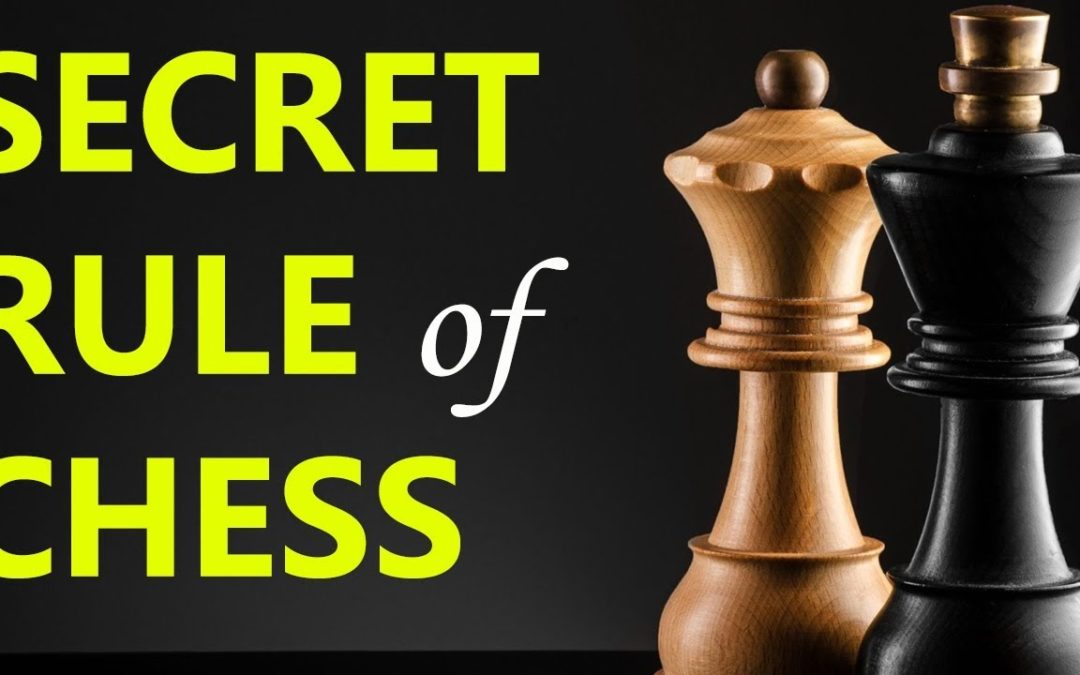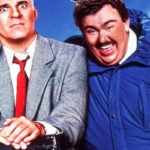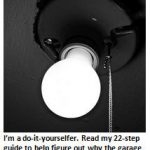
by TEJ | Feb 18, 2019 | Parenting and Family humor

Did you know chess was invented in India in the 6th century? An even more obscure factoid is that “The Secret Rules of Chess” were invented by one T. Jones in the late 20th century. It was time someone taught our impressionable youth these new rules. That somebody was me.
[The following is a partially true story.]
As a parent, I have long tried to be a role model for my children. I have always striven to teach my daughters fundamental values like integrity, honesty and good sportsmanship – except when it came to chess. Then all bets were off.
When my girls were seven and eight years old, respectively, I taught them the ancient game of chess (something for which they have never forgiven me). Initially, their skills were rudimentary at best. But after a couple years of patient mentoring, they were able to name most of the pieces on a multiple choice quiz.
Eventually, their games improved to the point that, over their vehement protests, I enrolled them in a chess tournament at a local elementary school. Upon arrival, I noticed that most of the kids and their parents had something in common: almost none of them looked like me. That’s because, of the 300 kids in this competition, 95% of them were either Chinese, Korean, Indian, Pakistani, or some other Asian demographic. I’d heard about Tiger Moms, but never have I seen so many in one room – the intensity in their eyes was daunting. As for the remaining 5% of kids, they didn’t stand a chance.
My girls were born in China, so on paper at least, they fit the demographics. But that’s as far as the similarity went. Factor in that I was their teacher and they had about as much chance of winning this competition as I had of becoming the next Pope.
The event went on forever, beginning at 8am on a Saturday and ending sometime after I lost consciousness from ennui. Every child played five rounds that day. After one match was over – which in my kids’ cases was usually about nine minutes – contestants were sent back to the cafeteria.
In these long breaks, parents ensured their prodigies devoted every minute to sharpening their skills, practicing feverishly until the next round arrived. I was so bored that after a couple hours, I broke down and challenged some of these youngsters to a game. I don’t want to brag, but there was this one third grader, Jason Kim, who needed 21 moves before he checkmated me. That was my best performance. Most games were over shortly after I located my horse.

This is the scene at the chess tournament I enrolled our girls in when they were in elementary school. What a wonderful way for a parent to kill 10 hours on a Saturday, that is, if you find watching bowling a little too exciting.
No doubt about it, these prepubescent grandmasters were extremely sharp. After a string of five embarrassingly quick defeats, I knew it was time to shake things up a bit. I decided to give these miniature Bobby Fischers a lesson by employing my own Secret Rules of Chess. My next opponent was a nine-year-old named Raza. After a conservative opening, Raza, boldly advanced his bishop into an attack position against my exposed queen.
I contemplated my options, and then, in a maneuver I’m fairly certain Raza did not see coming, I nudged my queen backwards off the board and brought her back onto Raza’s end of the board, putting his king in check. Raza jumped up and exclaimed, “You can’t do that!”, to which I calmly replied, “Apparently you’re not familiar with the Queen’s Revolt.”
He was, of course, more than a little confused, in part because the Queen’s Revolt doesn’t exist (in chess, that is). That’s when I began to weave a tale of how this tactic was first used by the Duke of Hapsburg against the Viscount of Mordovia in 1542.
In game after game, I continued to keep my young foes completely off balance with one surprising technique after another:
The Bad Bishop’s Deceit: My bishop gets to progress diagonally in two directions on the same turn – and can leap over pawns.
The Peasant’s Uprising: This can only be done one time per game – and only by the black chess pieces (because I was playing black). I can select one pawn to become a queen for four consecutive moves.
The Knight’s Alphabet: Here, my knight can do the usual L-shaped trot, followed by a W-shape, and even a Z.
Storming the Castle: One of my favorites. I jettison both of my rooks in unison the length of the board thereby taking out both of my adversary’s rooks and any other playing piece in their path. This is a particularly powerful stratagem but one which should only be attempted if your opponent is very young and incredibly gullible.

This chess cherub would have defeated me in three minutes had I not utilized a daring, obscure strategy – the Wizard’s Distraction: I exclaim, “Look, a scary monster!”, my opponent turns to look, and I steal her bishop.
Of course, with each “secret rule of chess” I made up, I explained in great detail its fake historical origins, dropping the names of plausible sounding kings, earls and baroness, and how, while not recognized in the United States (or China or Pakistan or India or any country where any of these kids’ families were from) they were widely accepted in places like Lichtenstein, Moldova or any obscure European country I was confident they’d never heard of.
I quickly garnered a string of five straight victories. My opponents had no clue how to defeat me. I even trounced the enormously talented seven-year-old Kevin Wong. I must admit, he would have beaten me in seven moves, had I not cleverly resorted to the masterful King Arthur’s Evasion: when he had me in check, I simply advanced my king the entire length of the board, jumping over several of Kevin’s pieces, and took out his rook.
Kevin protested until I patiently explained that this stratagem was first used by King Henry VIII to defeat Napoleon when they met for the World Chess championship in Reykjavik, at the height of the Spanish-American War.
Everything was going along swimmingly, until in the championship round, ten-year-old Raghav Patel employed a daring gambit he had learned from me – the ingenious Sultan’s Escape. He boldly took his king off the board for one turn to avoid being checkmated and then returned it safely to a different part of the board. Raghav was immediately required to forfeit the championship match to his rival, Fatima Shambhani. Apparently, tournament officials weren’t familiar with this move which, as I told Raghav, was first done by a Moghul sheik in the 15th century, during the Irish Potato Famine.
Several parents, who if you ask me, were wired way too tightly, filed a petition to have me permanently banned from any future chess tournaments. I guess some people just have no appreciation for the finer nuances of this ancient game.
That’s the view from the bleachers. Perhaps I’m off base.
[Author’s disclaimer: To all you parents who by now have concluded I’m a terrible person for duping young, impressionable children with my preposterous moves and tales, let me set the record straight. I won’t deny that I made up all these fake chess moves and ridiculous back stories. But the kids quickly picked up on the fact I was making it all up for entertainment purposes, and they were enthralled and laughed as I demonstrated new ridiculous tactics. And no, Raghav Patel did not try the Sultan’s Escape (though I think he was tempted). And everybody lived happily ever after. – The End.]
 PS: If you enjoyed this week’s post, let me know by posting a comment, giving it a Like or sharing this post on Facebook.
PS: If you enjoyed this week’s post, let me know by posting a comment, giving it a Like or sharing this post on Facebook.
Check out my latest humor book: YOU’RE GROUNDED FOR LIFE: Misguided Parenting Strategies That Sounded Good at the Time
© Tim Jones, View from the Bleachers 2019

by TEJ | May 29, 2018 | Parenting and Family humor
 Several years ago, someone told me a story about “discovering your grateful heart.” So, I decided to work on that. Over the course of the next year, I sent one thank-you letter each week to a different person who had positively influenced the trajectory of my life. These were people from many phases of my life – family members, co-workers, even a former girlfriend – who had helped me in some way or taught me a valuable life lesson.
Several years ago, someone told me a story about “discovering your grateful heart.” So, I decided to work on that. Over the course of the next year, I sent one thank-you letter each week to a different person who had positively influenced the trajectory of my life. These were people from many phases of my life – family members, co-workers, even a former girlfriend – who had helped me in some way or taught me a valuable life lesson.
But it occurs to me, there are still two individuals I’ve never sent a special thank-you letter to – my daughters. It’s way overdue, because they’re both grown up now (23 and 22) and have moved away, embarking on their own life journeys.
There is so much I would want to tell them. I’d probably start by thanking them for choosing their mom and me as their “forever” parents, as we call it in adoption circles. When they were infants in two different Chinese orphanages, what are the odds they’d somehow get paired with us? Some people say children who are adopted are “lucky.” I say Michele and I are the lucky ones.
I’d thank my daughters for the many evenings they snuggled on either side of me at bedtime as I read them Goodnight Moon, Harold and the Purple Crayon, Nancy Drew, and countless other books.
I’d for sure express my appreciation for all the handmade Father’s Day gifts, from their cement handprints to their macaroni likenesses of me. And how can I forget to mention the special breakfast in bed they prepared one year. Burnt toast, Raisin Bran, gummy bears, and maple syrup never tasted so yummy.
I’d thank them for all the times during elementary school they would make me laugh out loud as I chased them around the playground, chanting, “Must get Emmy” before suddenly changing direction and shouting, “Must get Rachel,” which always made them squeal with delight.
I’d proudly acknowledge Rachel’s efforts to help her younger sister with her spelling by quizzing her – like the time we were driving past our local grocery store (officially called Quality Food Center, but whose sign only goes by its initials, QFC) and Rachel posed the challenging question, “Emmy, how do you spell QFC? Don’t look at the sign!!”
(more…)

by TEJ | Mar 7, 2018 | Parenting and Family humor
 Growing up, I routinely was on the receiving end of my dad’s lectures about how cushy my life was compared to his when he was a youth. “You have no idea how easy you have it, son. When I was your age, I had no television or radio … or heat … or friends. I did 16 hours of chores each week to earn the privilege of sharing a single bed with my younger brothers. And if I got less than straight A’s, for my punishment, I had to paint the barn – with a tooth brush.” At least, that’s how I remember it.
Growing up, I routinely was on the receiving end of my dad’s lectures about how cushy my life was compared to his when he was a youth. “You have no idea how easy you have it, son. When I was your age, I had no television or radio … or heat … or friends. I did 16 hours of chores each week to earn the privilege of sharing a single bed with my younger brothers. And if I got less than straight A’s, for my punishment, I had to paint the barn – with a tooth brush.” At least, that’s how I remember it.
To be fair, my father, who grew up during the depression, had it much harder than I ever did. And my daughters, well, they lived in the lap of luxury, surrounded by computers and smart phones as they kept up with the Kardashians.
It got me wondering. How might my daughters harangue their own slightly spoiled offspring some 20 years from now? How would they contrive that their young lives in the early 2000s were oppressive? Perhaps that talk might go something like this….
Europa. I know you’re only twelve years old, but I am sick and tired of your incessant whining. You have no idea how easy your life is compared to what I had to endure growing up. When I was your age, I didn’t even have a hoverboard, let alone a levitating hover car.
My parents wouldn’t give me a smart phone till I turned 13. They were so strict. And to text anybody, I had to type on a keypad. That’s right. I literally had to enter a separate keystroke for every character. Telepathic texting was mere science fiction then. But these deprivations just made me stronger. I learned how to wait a full minute for a response to my Facebook posts. Don’t tell me you don’t know what Facebook was. You did a report on it in 5th grade history class.
(more…)

by TEJ | Oct 5, 2017 | Parenting and Family humor
 My father was an extraordinary man. He was an attorney who won 99% of his cases. He played piano like a virtuoso even though he couldn’t read a note of music. He was extremely well-read. That is, I assume he was since we had a room the size of an apartment devoted to his book collection.
My father was an extraordinary man. He was an attorney who won 99% of his cases. He played piano like a virtuoso even though he couldn’t read a note of music. He was extremely well-read. That is, I assume he was since we had a room the size of an apartment devoted to his book collection.
He also was a perfectionist with a serious case of OCD (Obsessive Compulsive Disorder). I remember the time he admonished me for placing the tape dispenser in the drawer on its side rather than upright. I believe that was the moment my father realized that my education was sorely lacking. I was 15 at the time. For, in the years that followed, my father took it upon himself to teach me the “proper” way to handle many different challenges that life presented.
Let me explain with an example. Say you’re alone in the house and you hear a scary noise that sounds like it might be coming from inside the house. You’re in total darkness. Should you:
- Grab a crowbar for protection against a possible home invader.
- Yell loudly to scare away any wild animals that may have strayed into your house. Or…
- Use the back of your hand to switch on the light.
The correct answer, according to my father, was, of course, C. One should always flip on a light switch with the back of one’s hand. The reason is obvious – to a crazy person: To avoid leaving messy, oily finger prints on the light switch plate. Evidently, that should be your primary concern when you suspect burglars may be breaking into your house in the middle of the night.
My dad died in 1979. In the 24 years that I shared this planet with him, he taught me scores of similar life lessons. Most of these were things I thought I had mastered by the third grade. Apparently, I was wrong. I might be performing a mundane task, such as brushing my teeth, when I’d notice in the mirror that objects were closer than they appeared. Specifically, my father, who would be standing in the doorway, quietly studying my technique, shaking his head in dismay. He would then deliver a lengthy dissertation on the correct procedure for a routine that I was evidently still mangling after all these years.
If it weren’t for my dad, I never would have realized the cutlery hazards that awaited me at the dinner table. Do you know the proper way to put a spoon in your mouth? Is it:
- Open your mouth BEFORE inserting the spoon. Then close said mouth and suck in the food.
- Fill the spoon only halfway; gently insert the spoon into your mouth, avoiding a slurping sound. Or…
- A gentleman NEVER puts a spoon into his mouth. He brings it to his lips and gently tips the soup onto his palate without the spoon ever crossing the threshold of his lips. Where ARE your manners!?!
According to my father the correct answer is C. But technically there was no correct answer – because whatever I did, it would have been wrong. Because, my dear father was (how can I put it gently?) flippin’ crazy.
I have so many fond memories of those bonding moments with my dad. I even (surreptitiously) kept a list of every life skill he dadsplained to me: How to use a bottle opener; How to make toast; How to bite my tongue when he routinely insulted my intelligence. I gave my private list a snarky title: “Things My Father Taught Me.”
 I feel morally obligated to pass this wisdom onto you, my readers, so that you too may prepare your children for the harsh world that awaits them.
I feel morally obligated to pass this wisdom onto you, my readers, so that you too may prepare your children for the harsh world that awaits them.
Thank you, dad, for teaching me:
How to water a plant
How to toss something into a trash can
How to lift a suitcase
How to unpack a suitcase efficiently (I didn’t know that was a thing)
How to adjust the angle of a table lamp for optimal reading lighting
How to dry dishes
How to walk properly
How to chew food properly
How to hang a shirt on a hanger (don’t forget to button the collar button and the third button down)
How to open a shower curtain
How to fold a towel and put it on a towel rack (make sure the width at the top is the same as the bottom)
How to hold a sharp knife (this would have come in handy, had I opted to pursue a career as a mugger)
How to close a door behind me
How to buy low and sell high (I really should have paid closer attention to that lesson)
How to pour soda into a glass
How to hide the body and not leave prints (Okay, I made that one up. Just wanted to see if you were still paying attention)
How to hold the steering wheel (always at 11 and 1, never 10 & 2. My Driver’s Ed instructor was apparently a charlatan)
How to sit at a table (your back should NEVER touch the back of the chair)
 How to say hello properly when answering the phone
How to say hello properly when answering the phone
How to dial a rotary phone (Always use your middle finger. To this day, I still use my middle finger for all sorts of situations.)
And yes, the proper position of a scotch tape dispenser when placed back in a drawer: upright.
One day, my father discovered my incriminating list hidden in my bottom dresser drawer, underneath my pajamas. Surprisingly, he did not take it as a tribute. Go figure. On that very memorable occasion, he taught me another valuable life lesson: Never hide in your pajama drawer something you don’t want your crazed father to find.
As misguided as his lessons were, I know my dad meant well. I think about that list every now and then. Occasionally, it makes me cringe slightly – usually at the moment I catch myself telling my 21-year-old daughter the proper way to hold the steering wheel.
That’s the view from the bleachers. Perhaps I’m off base.
 PS: If you enjoyed this week’s post, let me know by posting a comment, giving it a Like or sharing this post on Facebook.
PS: If you enjoyed this week’s post, let me know by posting a comment, giving it a Like or sharing this post on Facebook.
Check out my latest humor book: YOU’RE GROUNDED FOR LIFE: Misguided Parenting Strategies That Sounded Good at the Time
©Tim Jones Betsy Jones, View from the Bleachers 2017 (Betsy Jones is my sister and my editor. In fairness, she actually re-wrote most of this piece).

by TEJ | Jan 29, 2017 | Parenting and Family humor
 If you’re a parent like me – or even if you’re a parent who’s not like me – at some point you’ve probably asked yourself, “Why on earth did I ever have kids?” In my case, I blame my wife.
If you’re a parent like me – or even if you’re a parent who’s not like me – at some point you’ve probably asked yourself, “Why on earth did I ever have kids?” In my case, I blame my wife.
For years, I found that same question popping into my head – roughly every four minutes – as I would endure one battle after another with my rebellious younger daughter for household supremacy. I fondly recall that satisfying period when I was in charge and my word was law. But then she turned two.
Parenting is exhausting, with long stretches during which you wonder if your children will ever show you a glimmer of respect or affection – and by “long stretches” I mean from age two to whatever age they currently are. If you’re feeling anxious that perhaps your child doesn’t love you, despite all the hard work and sacrifices you’ve made, it’s understandable. But there is hope she’ll get through her awkward, narcissistic phase, and the day will come when she shows you her devotion. Admittedly, when I say “there is hope”, I mean in the way that there’s hope my Seattle Mariners may someday make it to the World Series, or how astronomers hope someday they may find intelligent life elsewhere in the universe.
The signs are obvious if you just know where to look. Here’s how I know my daughter loves me:
(more…)




 PS: If you enjoyed this week’s post, let me know by posting a comment, giving it a Like or sharing this post on Facebook.
PS: If you enjoyed this week’s post, let me know by posting a comment, giving it a Like or sharing this post on Facebook.
















